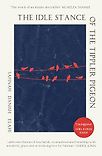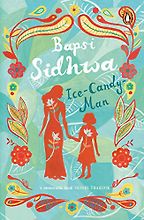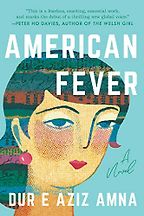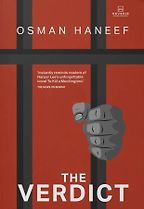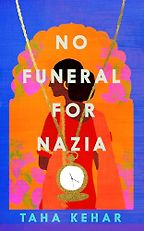To start, could you tell me a bit about the novelistic tradition in Pakistan? Presumably, it’s not just in English, but a lot of other languages too.
I primarily write and read in English. Although everyone speaks Urdu at home and it’s the language of communication, we use English a lot, it’s our language for textbooks. There is a lot of literature that’s written in Urdu and in the regional languages of Pakistan—Sindhi, Punjabi, Balóchi, and Pashto—but I have to admit I’ve never completed a novel in Urdu and while I speak some Punjabi, I can’t read it.
I feel Pakistani literature has changed a lot in the past five years. In the past, most of the famous names that have come out of Pakistan have been writing for the West. There has been almost an expectation that our literature was going to talk about terrorism and a certain kind of image that Pakistan has. Publishers went for stories that were about what people outside Pakistan think Pakistan is.
That has changed substantially since trade between India and Pakistan was halted in 2019. Until then, Pakistani writers would be published in India—and then maybe also in the UK or the US. India was a stepping stone for us, so if an Indian publisher picked up a book by a Pakistani writer, they would either sell on the rights or, if was a big publishing house, they would take it on themselves.
In 2019, that stopped happening. Pakistani books published in India could not be sent to Pakistan because of the trade ban and sending them via UAE—which is what our route is now—became very expensive. We needed Pakistani publishing houses.
I now run a publishing house in Pakistan which came about after the trouble that we had with my first novel. A publishing house in India had offered me a book deal, but they said, ‘You’re not going to be able to come to India to promote it and, also, your books will never be available in Pakistan unless you find a Pakistani publisher.’ A lot of publishers in Pakistan at the time weren’t doing fiction. They focused on textbooks because you have a confirmed order of, say, two thousand books which is placed in advance. Fiction just seemed too much of a risky business venture.
With my own novel, I did a lot of research with agents and publishers, and I realized that we had a big gap here. There was no one picking up ordinary Pakistani stories that are told in an extraordinary manner. After I started the publishing house, Reverie, people started approaching me—really good writers who had published elsewhere but were looking for a new platform.
That’s how things started to change. As well as Reverie, there were two or three other publishing houses as well, which started publishing more creative stories, rather than stereotypical ones. I’m not saying that those stereotypical stories were bad. They were great stories, well written, and they won awards. But I felt that they didn’t really depict my life, and they didn’t depict anyone who I knew here. It was always either about the diaspora—somebody who has moved out of Pakistan, how they look at identity and immigration—or about terrorism.
For myself—and my 14-year-old daughter—I felt we wanted to read our stories, we wanted to see ourselves in the books. That, I felt, was missing. I ended up picking up a lot of manuscripts that talked about freedom, about the laws of Pakistan, about politics, about love, about parenting. It was things that are universal but were being ignored because Pakistani writers were focusing on ‘this is my story to tell in the West.’
So things have changed a lot in the past five years and I’ve also ended up reading a lot of Pakistani fiction!
For this list, you’ve picked out five of your favorite Pakistani novels. Let’s start with Ice Candy Man by Bapsi Sidhwa. This is set in the 1940s, and it’s about the narrator’s experience of Partition. Tell me more about the book and why you like it.
This is one of my favorite books by a Pakistani writer. What really spoke to me in this novel was the fact that an eight-year-old was telling the story. I found it very refreshing, the way this was written, because a lot of times what happens is even when a child is speaking, it sounds like an adult. Bapsi Sidhwa is such a fantastic, phenomenal writer that it’s a disservice to even discuss her work critically, but I really like the way the voice was. At the time, I was writing my second novel, and I was also telling the story from a seven- to eight-year-old girl’s perspective.
This book was published more than 30 years ago, so it’s really from the previous generation, rather than the changes since 2019 you were talking about?
Yes, I picked four books that are very recent—published in the past two years—but this was one of my favorite Pakistani novels. There’s another older book I was thinking of choosing, A Case of Exploding Mangoes (2008), by Mohammed Hanif, loosely based on real events, which I would include in this list if it were to be a longer one. I love that book.
Here in the UK, when I was at school, we read classic authors like Charles Dickens or Jane Austen. What’s the equivalent in Pakistan?
We read those authors, too. For English literature, we read Dickens and Shakespeare. We were colonized, right? We read The Merchant of Venice and Julius Caesar.
There’s also Urdu literature that we read. We read very difficult poetry by Allama Iqbal, his famous “Shikwa” and “Jawab-e-Shikwa”, which are supposed to be very intense. There would be no novels as such—we focus on short stories and short poems by Faiz Ahmad Faiz or Iqbal. They’re the pre-Partition poets who are the giants of Urdu literature.
This year my daughter is in Grade Nine and she’s reading To Kill a Mockingbird. I was very happy with that choice, actually, because I remember reading very old classics. This is also a classic, of course, but it’s a little bit more relevant in terms of our politics. My son is reading Wonder by R. J. Palacio. It’s about a special child and it was turned into a movie with Julia Roberts. It’s a great book. It’s great that children are also reading things that I’ve read later on and really enjoyed.
Let’s go on to more of the recent novels from Pakistan that you’ve picked out. The first one is Little America, which came out in 2021. Tell me more.
Little America is by Zain Saeed. It’s about a young man who wants to create a little America in Pakistan because he feels that there isn’t enough freedom in Pakistan to do whatever you want. Whatever you wear, whomever you love, there are too many restrictions, so he decides to build something up with a friend of his. Initially, he lends people a car—it’s like a hidden date because they can’t be seen in a restaurant. Then he meets this other rich guy and he builds up a Pentagon-style area near the beach and calls it Little America.
I just liked the concept of how Saeed deals with freedom of choice. Even though we’re meant to be a democratic country, there are a lot of things that we don’t do because society and culture don’t allow us to. The young people here think that you can escape to the US or to the UK—or, now, to Canada or Australia—and have the life of your dreams, so this man tries to build something like that, in a compound here in Pakistan.
And that rang true to you when you read it, this need to have freedom to do what you like?
Yes, it did. I don’t want to spoil it, in case you ever want to read it, [SPOILER ALERT] but in the end he calls it a hoax. You think that the idea of freedom solves everything, but it has its own issues. Also, containing it all in a compound is not complete freedom because you’re restricted within the compound.
I’d say there’s almost a political debate within the book: What kind of freedom are we looking for? The book begins: ‘They say that America is the best country in the world. I’d say that it’s merely the loudest.’ I found it really quirky, the way he began the novel. I really enjoyed it.
The next novel, by Dur e Aziz Amna, is also on a similar theme in the sense that it’s called American Fever. Tell me about that book.
I read this only very recently. I thought it was funny and heartwarming. It was something that, somehow, I related to. I’d heard mixed reviews, but it really exceeded my expectations.
It is about a girl who goes from Pakistan to the US for a year and stays with a host family in America. She finds out that she has tuberculosis. It’s her journey of escaping, again, the confines of culture, and going there and standing up for her own values. She finds out things that are similar and things that are different, and it’s about her experience in a small town. I was in the US last year for a three-month residency, so I could also relate to some things there. I’ve traveled to the US before, but I’d never stayed for that long a stretch.
There were some things that I really found funny, the way she’d written about them. It’s a story about breaking the shackles and going on an adventure. She comes back home a little bit earlier than was decided initially. I think it’s really well written, and a very fun book.
Let’s go on to The Verdict by Osman Haneef. What’s this novel about?
This novel is more serious. It’s about a Christian boy who is framed. I don’t remember who he’s framed by, but he’s framed for writing on a mosque wall. A human rights lawyer tries to defend him. Towards the end, he says that the child is uneducated, so he couldn’t have written on the wall, so he’s being framed for something he hasn’t done.
It talks about minority rights; it talks about the law; it talks about how things can be mangled in Pakistan sometimes. It also has a slight love story angle to it because the lawyer has a love interest and she’s also a lawyer and she’s helping him out. I really like what Haneef has done with this fiction story, and this is, I think, also loosely based on true events.
Let’s look at your final choice, No Funeral for Nazia. Tell me more about this novel and why you like it.
This book is by Taha Kehar. I really like the fact that he has dealt with death in a comic manner. This woman, Nazia, dies at the very beginning, and we never actually meet her, but we know her through her friends. They paint a picture of who Nazia was.
Nazia has a very strange request of her husband and her friends, and that is to throw a party instead of a funeral. Funerals in Pakistan are a three-day event, people are expected to be very sad and to cry and be in grief for days, so this request was such a strange manner in which to celebrate a life. And then, to top that, Nazia calls a hypnotist to hypnotize her friends, her sister, and her husband, to get closure. I found that it was just a really great way to deal with a sad topic. It isn’t an investigation. It isn’t a murder mystery. It isn’t grief, loss; it’s just this fun book. I really enjoyed reading it.
Generally, of the books you’ve chosen, there is a combination of serious and…I guess you appreciate them if they’re quite funny as well?
Yes. I really appreciate writing that can manage to deal with serious topics in a funny or sarcastic manner, by putting in irony. I like writing that can make you laugh and make you ponder certain issues. I’m not much of a romance person. These books are mostly character-driven as well.
Finally, tell me about your books and how you fit into the tradition of Pakistani novelists.
My first novel, Eye on the Prize, was about helicopter parenting. The book is set in Karachi and revolves around a sports day. You see these three children competing at a sports day, but I tried to make it a social commentary about how the parents were more competitive than the children. This was a story that had never been told in Pakistan. We also have private schooling; we also have these helicopter parents who are micromanaging everything.
With my most recent novel, The Idle Stance of the Tippler Pigeon, it was a story that had been sitting with me for a very long time, and I just wasn’t able to put it down. The home that the main characters, Misha and Zohaib, live in, is my childhood home. The mulberry tree, the big garden, and the staircase—all of that is based on my childhood home, but the characters are fictional.
The story is about a pair of siblings and their house help’s daughter. I wanted to talk about class structures in Pakistan. Because my first novel dealt with the elite class, I wanted this to be a commentary between the middle, the lower, and the upper class. I draw that comparison by the house help’s daughter being best friends with the two children in the house. I tried to show how the children are able to form a deep friendship with Nadia, who’s the househelp’s daughter, but there is this resentment and tension in the air when the adults are involved.
It deals with harassment, at different levels, in Nadia’s life, and it deals with mental health. I tried to touch upon quite a few things without actually saying too much, but my main focus was on what a woman’s life looks like when she is plucked from a very low class and dropped into the upper class and then the middle class. It’s a commentary on what happens when a girl receives an education she didn’t really ask for. Because here, when you educate someone, you are doing them a favor. You’re trying to make a better life for them, but, at the same time, does the social structure support this escalation in class? Is the girl then able to take agency in her life or is she somehow confused between the two classes? There are a lot of questions that come up within the story.
Five Books aims to keep its book recommendations and interviews up to date. If you are the interviewee and would like to update your choice of books (or even just what you say about them) please email us at [email protected]
Five Books interviews are expensive to produce. If you've enjoyed this interview, please support us by donating a small amount.

